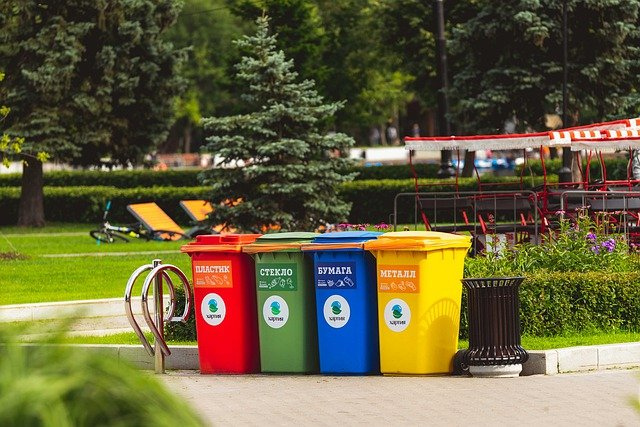When products and materials come to the end of their life, reuse, upcycling, recycling, incineration, and landfilling come into question.
Reuse
Reuse of a material means that it regains its life for the use that is its raison d’etre. Reused materials or products are called second-hand or refurbished. Here, when we look at it in terms of recycling, the material or product does not undergo a major change.
Upcycling
In this case, no major changes are made to the product, but it is used for a different purpose than the production purpose at the beginning of the product’s life. Its overall appearance is not changed for this different purpose use. Planting flowers in a teapot, using a cart wheel as a stand, designing seating areas or beds from shipping pallets can be given as examples for upcycling.
Recycling
This term, which is the most familiar to us, is the process of saving the raw materials of the produced products from being waste and including them in the production again. In other words, the material of the product, not the product, is recycled and recycled raw materials are obtained. For this, the product is melted after being separated from foreign materials. Products made of all kinds of plastic, aluminum and metal materials, including water bottles, may be subject to this process.
Incineration
Technically it is actually the conversion of waste matter into energy. For this conversion, the waste material is burned or subjected to processes where it can turn into gas. Fuel can also be produced from some products or materials. The main product is completely destroyed in this process because the high temperature molecularly breaks down the material.
Landfilling
It may also be possible to define it as storage. The waste is piled up and covered with dirt and other materials. Although this definition is evaluated under the heading of recycling, there is no output of this storage since no material or product is recovered. In some cases, it provides the formation of methane gas and this methane gas is consumed as energy.
Wastes
Post-Industrial These are the wastes generated in factory production. These types of waste are part of the production process. They are generally scraps, product scraps and wastes from production processes.
Pre-Consumer It is the type of waste created by the products with production defect. Products that are produced in more than the order amount from time to time are also considered as waste and included in this group.
Post-Consumer Actually, we can call this waste the last waste. The material comes to the factory, passes through the production process, becomes a product and reaches the end consumer. The consumer uses the product and then throws it away. The products thrown into this garbage are post consumer wastes.
What Materials Can We Recycle?
In brief the materials that we can recycle as follow:
- Plastics
- Metals (Aluminium, Steel, Copper)
- Glass
- Paper ( Cardboard, Office Paper and Magazines)
- E-Waste ( Some kind of electronic materials)
- Textiles
- Batteries

